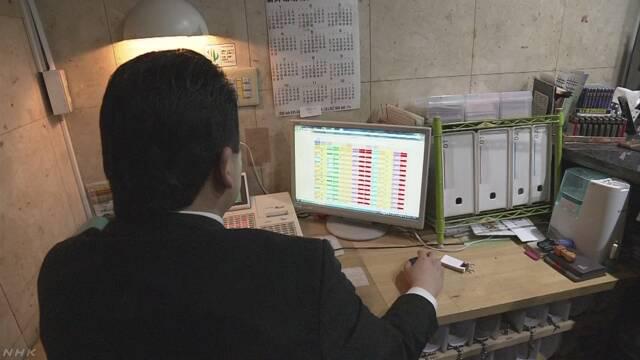US ride-hailing company Uber follows AI suggestions to raise prices when there are many riders or fewer drivers in a set area. Four major professional sports associations in the United States, including the National Basketball Association and the National Football League, have also adopted a dynamic pricing approach for some of their games. They are letting AI decide ticket prices of games based on their popularity and other factors.
Dynamic pricing is also making its way into Japanese sports. During the last season, the pro baseball club Fukuoka SoftBank Hawks used AI to set ticket prices for some of its home games. The system predicted demand for each game based on data such as ticket sales over the 3 previous years and the standings of the Hawks and their opponents. Prices were adjusted according to the predictions. The system was put into place through joint efforts by the baseball club -- which is looking to maximize profitability -- and Yahoo Japan -- which is exploring business possibilities of its pricing system.
Al used by Japanese hotels
Dynamic pricing first took root in the hotel industry. A business hotel in Tokyo's Tsukiji area started setting prices based on AI suggestions. Staff members used to check room prices of their competitors daily over the Internet before setting prices. But profits tended to fluctuate as such decisions depended on the staff members' experience and guesses.
The hotel's director says that after introducing AI, customers and revenue have increased, and the time it takes for the staff members to set prices have dropped by more than half. The pricing system the hotel uses was developed by the IT venture firm Sora, based in Tokyo's Shibuya district. The system collects competitors' room rates and availability. It also takes concerts and other events scheduled in the area into consideration. The system comes up with optimum room rates for the next 365 days, and updates them daily.
Why target the hotel industry?
One reason Sora targeted the hotel industry is that operators face a structural problem. While demand varies significantly depending on the season or day of the week, a hotel cannot change its number of rooms. At the same time, demand for flexible pricing is strong, and data to come up with optimal prices are easily accessible online.
Sora began offering its system 6 months ago, but about 1,000 hotels have already adopted it. 28-year-old Daiki Matsumura founded the firm 3 years ago after leaving Yahoo Japan. Matsumura points out that an increased number of people are using smartphones to purchase travel tickets or book hotels, and many websites are offering price comparisons of different operators, making data collection easier. He says this will lead to the growth of dynamic pricing. His company plans to start offering services to restaurants and bars in the future.
Matsumura says price setting by AI will become more common in Japan as more sales are digitized, making price adjustments easier. He says dynamic pricing will improve the profitability of businesses while providing customers with some benefits -- and lead to a society that's more adaptable to change.
Matsumura expects prices to become even more fluid in the near future, changing constantly in accordance with data and the situation of customers.
Stronger customers, complex pricing
In the past, product prices were more or less the same across the market. Manufacturers had a tight grip on them, with mass production at big factories. But as retail chains such as supermarkets grew, they began to have a say in price setting.
The underlying trend had always been that prices are set by corporations and consumers choose from whatever is offered.
In recent years, however, consumers are having a bigger impact on the pricing process, as they can easily compare prices on the Internet, and are able to express their views online.
Prices of products and services are becoming increasingly varied due to the emergence of apps that allow individuals to sell used goods, and the rise of the sharing economy.
Corporations face the challenge of maximizing profits while trying not to lose their customers. Finding optimal prices is becoming increasingly difficult. More and more Japanese companies are likely to adopt AI-based dynamic pricing, as it can gather data from across the Internet to help them adjust prices accordingly.
